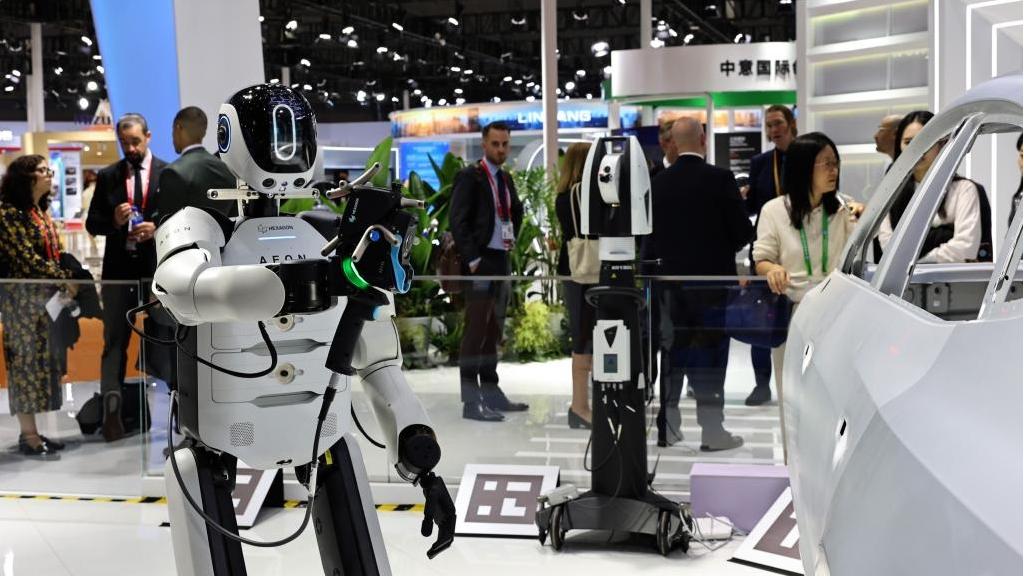China’s role on green transition highlighted before COP30
Just ahead of the UN Climate Conference (COP30) in Belém, Brazil, which officially kicks off on Monday, China has sent a series of positive signals underscoring its ambitions and achievements in tackling climate change. These include a Chinese official stating that the scale and difficulty of China's carbon reduction efforts are rarely seen in the world.
China's role at this year's COP is being closely watched by global media, which highlights its growing leadership in driving the global energy transition. At the same time, Beijing has also become the defender of international cooperation on climate change, working hand in hand with other nations to advance collective action.
China's Minister of Ecology and Environment Huang Runqiu told the media that China's 2035 Nationally Determined Contributions (NDCs) target has been historically expanded to cover the entire economy and include all greenhouse gases, marking the first time the country has set an absolute reduction target for total greenhouse gas emissions - demonstrating its strongest determination and commitment to date, according to a video published by China Central Television (CCTV) on Sunday.
Huang emphasized that for most developed countries, the time span between reaching their emissions peak and achieving noticeable reductions ranges from 20 to 50 years, which is incomparable to China's planned decline of around five years after peaking.
Both the magnitude (7 to 10 percent) and the absolute volume (1 to 1.5 billion tons) of China's pledged reductions significantly exceed those achieved by the US and Europe over comparable periods.
The minister also said China remains a developing country, and setting carbon reduction targets even before reaching its emissions peak is a task of extraordinary difficulty. The scale and depth of China's emission cuts and industrial transformation are rarely seen in the world.
On Saturday, China released a white paper titled "Carbon Peaking and Carbon Neutrality China's Plans and Solutions," which presents a comprehensive overview of China's major achievements in pursuing peak carbon and carbon neutrality over the last five years and shares China's approaches, actions and experience, per Xinhua.
This year's summit comes as the US once again withdraws from the Paris Agreement and the world experiences yet another year of record heat and extreme weather. China's role and its climate commitments are being closely watched by foreign media.
"China's goals are particularly important for two reasons: It is the world's largest producer of emissions … And it's the global leader in the production of green technologies from wind and solar power to electric vehicles," the Los Angeles Times reported on Saturday.
China "leads the world when it comes to adopting clean energy and producing the equipment needed for the transition to a decarbonized economy, including solar panels, wind turbines and electric vehicles," according to the Nature.
The New York Times took note of Chinese EV's presence during the conference. It said that "the fleet of electric cars pulling up to the conference hall was mostly Chinese."
The report noted that although the car that carried Brazilian President Luiz Inácio Lula, whose country host this year's COP30, was a Chevrolet, but it was among a fleet of Chinese electric and hybrid cars assembled to shuttle delegations to the summit's opening on Thursday.
The Guardian noted that during this year's conference, "cooperation among countries in the Global South - which could include China, and some of the middle-income countries that have already started on a greener path - will also be key."
China has already emerged as a leading force in the global energy and economic transition, and its role in addressing global warming and sustaining international cooperation on climate issues carries high expectations, Ma Jun, director of the Institute of Public and Environmental Affairs, told the Global Times.
Ma cited examples from this year, noting that China has signed climate cooperation agreements with the EU, the UK, Brazil, and several other countries. These bilateral mechanisms, he said, serve as key cornerstones supporting multilateral efforts to address global warming.
The real disrupter
The US' withdrawal from the Paris Agreement has also been widely seen by the media as a hinderance to global effort in tackling global warming.
Reuters also reported that governments heading to the COP30 in Brazil are bracing for the possibility that the US may seek to disrupt negotiations at the event - even without any US officials showing up.
Three European officials told Reuters the EU has been preparing for multiple scenarios at COP30: including the US skipping it entirely, actively participating and seeking to block deals, or staging sideline events to denounce climate policies.
At a UN Security Council debate on climate and security on Thursday, China's deputy permanent representative to the UN, Geng Shuang, twice took the floor to rebut US' accusations.
The US representative initially did not name China directly but later singled it out in his statement. In response, Geng, who at first did not name the US but later did so explicitly, said Washington should stop shifting blameand instead work with other countries to tackle global climate challenges.
The US making groundless accusations against China is, in fact, an attempt to divert international attention from its own backsliding on climate policy and to cover up the fact that it has withdrawn from the Paris Agreement twice, said Song Wei, a professor at the School of International Relations and Diplomacy at Beijing Foreign Studies University.
Ma said that it seems that climate issues have become a convenient pretext for some Western countries to attack China - when we weren't doing well, they criticized us, and now that we've made progress, they still find fault. It's been reduced to nothing more than a political weapon.
Photos
Related Stories
Copyright © 2025 People's Daily Online. All Rights Reserved.









